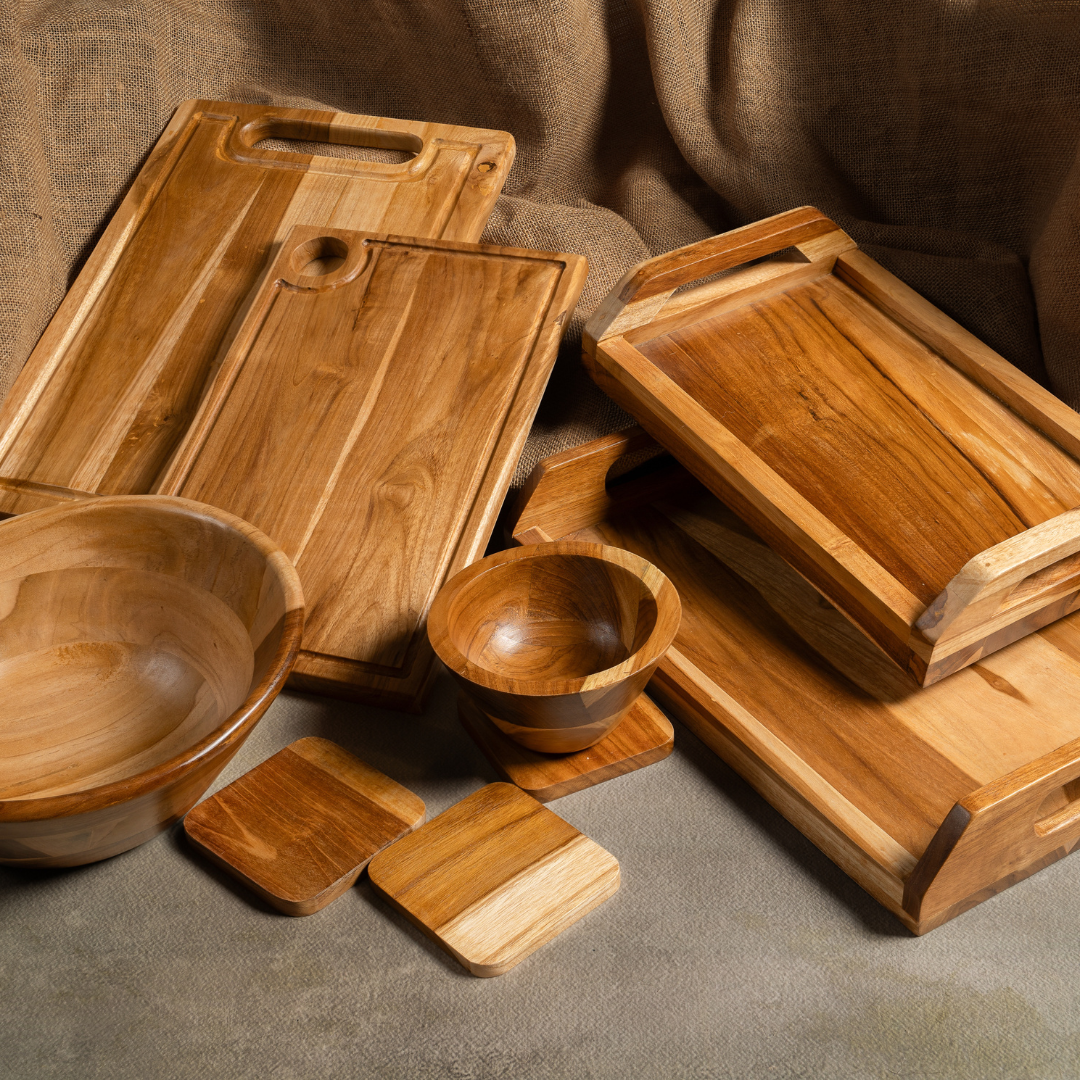
Sustainable Living: How Choosing Wooden Kitchenware Can Transform Your Home and Help the Planet
Share
In our current environment-conscious world, where all too often our decisions are influenced by concern for the planet, living sustainably is no longer a fad—it's an obligation. One easy and effective change is switching from plastic or metal kitchen utensils to wood. From cutting boards and serving ware to utensils, wood-based kitchen items add a natural sophistication to your home while lowering your carbon impact. This blog delves into how switching supports green living, is good for your health, and makes your kitchen a healthier, greener space..
Why Sustainable Choices are Important in the Kitchen
Our daily routines take place in our kitchens, and the equipment we use there can have significant implications for the environment. Plastic products, for instance, come from fossil fuels, may take hundreds of years to break down, and tend to leach unhealthy chemicals into the world and food. Metalware, though long-lasting, has energy-intensive extraction and production processes that lead to pollution and carbon emissions.
Conversely, wooden cookware is made from renewable materials, usually from sustainably harvested forests. These items are biodegradable, take less energy to manufacture, and break down naturally without damaging ecosystems. By choosing wood, you are making an informed decision that is in harmony with sustainable living practices.
Main Advantages of Using Wooden Kitchenware
1. Eco-friendly and Renewable Material
Wood used in kitchen utensils-teak, mango, bamboo, or acacia-can be a renewable resource. When harvested responsibly, these woods originate from forests certified by the Forest Stewardship Council (FSC), ensuring that tree harvesting promotes forest renewal and biodiversity. In contrast to plastic, which relies on non-renewable petroleum resources, wooden kitchen utensils facilitate a circular, sustainable life cycle.
2. Biodegradability and Waste Reduction
Wooden utensils biodegrade naturally over time, recycling nutrients back into the soil without toxic residues. This biodegradability translates to less landfill waste and a reduced environmental impact. Wooden kitchenware is also more durable than plastic, meaning less need for replacement and less waste produced.
3. Healthier and Non-Toxic
Wooden kitchen utensils are free from toxic chemicals commonly present in plastic utensils, like BPA and phthalates, that leach into food and cause health problems. Wood's inherent antibacterial properties also stop bacterial growth, so wooden spoons and cutting boards are safer to use in food preparation than plastic utensils that provide microbes with scratches and grooves in which to live.
4. Durability and Longevity
With good care-regular cleaning and the occasional oiling-wood kitchenware can be used for years, a green investment. Wood does not warp and crack easily, and its natural durability makes it survive kitchen wear and tear on a daily basis. Compared to metal utensils that scratch cookware or plastic that becomes brittle and breaks down in no time, wood handles pots and pans delicately and is designed to last.
5. Aesthetic and Sensory Appeal
Wood adds a touch of warmth and natural elegance to your kitchen. Every piece is different, highlighting unique grains and textures that add rustic beauty and poise. Wooden cutlery also maintains the natural taste of food better than metal or plastic, which may sometimes introduce metallic or chemical flavors.
Conclusion:
Make the Switch to Wooden Kitchenware Today
Sustainable living begins with simple, daily decisions that together make a significant difference. Wooden kitchenware provides a useful, elegant, and environmentally friendly alternative to plastic and metal kitchen utensils. Its renewable, biodegradable, healthy, and durable properties make it the best option for those wanting to live in harmony with nature.
By welcoming wood kitchenware, you not only make your home more stylish and functional but are also taking a great step toward preserving our planet's resources and reducing waste.
Call to Action
In our current environment-conscious world, where all too often our decisions are influenced by concern for the planet, living sustainably is no longer a fad—it's an obligation. One easy and effective change is switching from plastic or metal kitchen utensils to wood. From cutting boards and serving ware to utensils, wood-based kitchen items add a natural sophistication to your home while lowering your carbon impact. This blog delves into how switching supports green living, is good for your health, and makes your kitchen a healthier, greener space.
